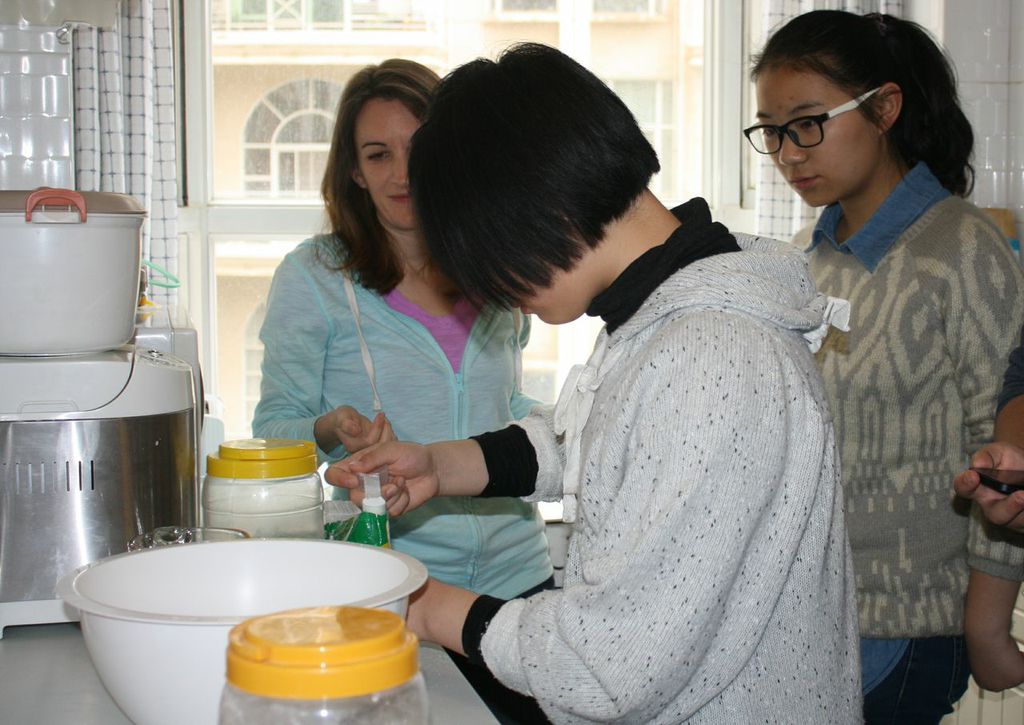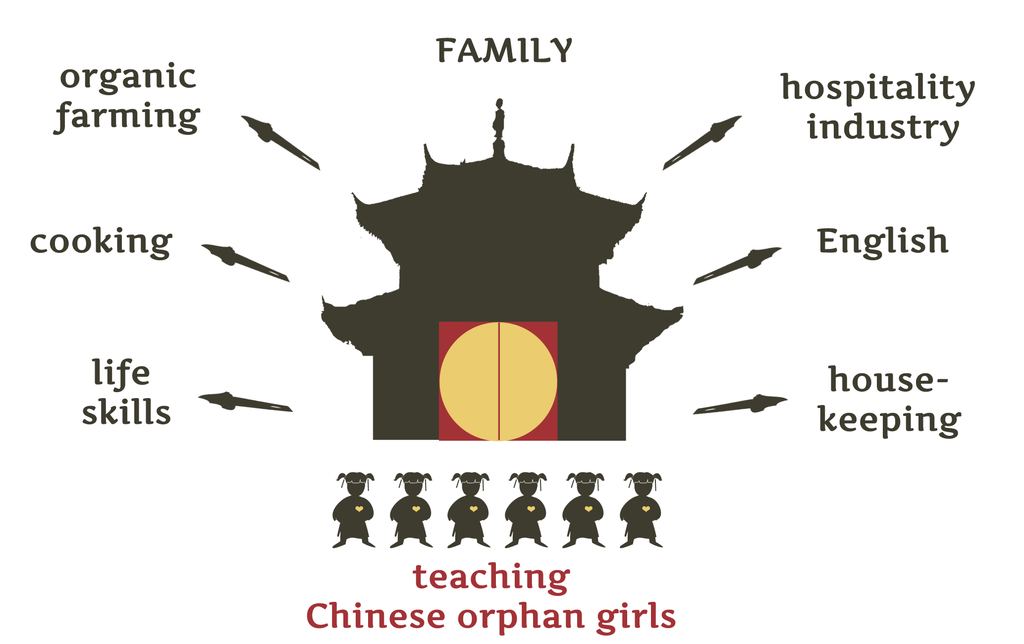Kevin Shorter (MBA ’06) and his wife, Allison, recently created Josiah’s Covenant, a nonprofit organic farming business to provide a family and jobs for Asian orphan girls vulnerable to forced marriages, prostitution and sex trafficking.
In 2013, the Shorters and their two daughters left home in California and moved to Kunming, China. They have been studying Chinese and setting up the business that gives them space to house orphan girls, creating jobs for them while they learn English and practical skills that may open doors to other employment opportunities.
How did you become interested in helping girls who could become victims of human trafficking?
In the 1980s my wife read about China’s One-Child Policy and some of its unintended ramifications. She read about the thousands of abortions every year that happened just because the sex was found to be a girl instead of a preferred boy. She read about mothers leaving their female babies outside of police stations or orphanages because they wanted to have a boy. Her heart broke and she thought that when she grew up, she would adopt Chinese girls to give them a chance to be loved and cared for, to let them know that being a girl was a blessing.

Allison teaches the science of baking to Chinese girls.
When we got married, an inevitable Chinese adoption was understood. We have since tried to adopt on two occasions. On the first attempt, we got pregnant with our second child, so we had to stop the process. And our second attempt at adoption ended because the little girl that was matched with our family was given to another family two weeks after saying she would be ours. Our little girl was gone before we could hold her in our arms. This second attempt left us emotionally drained, and we put a pause on the adoption process. After spending more than $30,000 and countless hours between the two attempts, we were still left without the Chinese daughter.
What motivated you to leave your life in the USA and move to China?
Three years after pausing the adoption process, the desire to help orphans began to stir once again. We found out that orphanages in China can receive state funding for orphans in their care who are under 18 years of age. With a few exceptions of those who can find openings back in the orphanage as a housekeeper, orphan girls in China usually end up on the streets to fend for themselves.
Without family, relationships and education, orphans fall easy prey to traffickers looking to take advantage of those without jobs and other protection. Currently there are an estimated 33.8 million more men than women in China (source: China’s National Bureau of Statistics). Kidnapping and trafficking of women is rising steeply, and the emotional strength of women in China is draining; every four minutes a woman kills herself. China is the only country in the world where more women than men commit suicide (source: World Health Organization.)
We felt it was time for us to do more than trying just to save one.
What is your vision for the business?

The mission of Josiah’s Covenant.
Our vision is to hire girls that have aged out of the orphanage. We desire to give them a place to land to keep them off the street and out of the lures of sex slavery. We are currently starting an organic farming business as this will create jobs for us to hire orphan girls, and it would give us land to house them.
By hiring them on as employees, we can help change their view of their value. For their whole lives, they have needed people to take care of them, providing for their food, shelter and daily activities. More than likely, neither people nor experiences have told them they had anything to offer their world, especially since they are females. By offering them a job where they get a wage and provide a benefit toward a business, they are more ready to believe they can bring something of worth to those they are around.
Beyond being their employers, we will invite these girls into our family. They will be like daughters to my wife and me, and they will be like sisters to our girls. These girls need to be offered something that is beyond themselves. They need to know they are not alone, and they need to see that someone wants them.
My wife is the vision, passion and driver of this nonprofit. Charles Iacovou, dean of Wake Forest School of Business, likes to tease me that she should have been the one who got the MBA. More than just a motherly influence, she is a strong woman.
I will provide a fatherly role for these girls and provide some of the training, but my main role will be setting up the operations of the business and negotiating with the governmental officials over the business regulations and with local business finding future employment for the girls.

Kunming Gate
What is this experience like for your family?
The first year here has been learning Mandarin and getting adjusted to life in China. It is definitely a whole new world for all of us. We had never been to China nor did we know any of the language before we came. We are adjusting.
We originally thought our girls would get to know Chinese children their age and actually learn the language quicker through these relationships. However, we never see children their age unless it’s in the morning heading to school. Starting at age six, children go to school from 8 in the morning until just before dinner. Then between specialized classes and homework, they are working until 11:00 or 12:00 at night.
Day to day we are exposed to many differences between our cultures, but our girls are also becoming more accepting of these differences and becoming bilingual. They will be better positioned for our ever-increasing globalized world, and it’s making us all into well-rounded individuals. The adjustments have been tough, but we are all excited about where we are heading.
You said WFU provided you with the processing skills to “look down the supply chain.” How did your experience prepare you to take this next step?
Wake Forest was a great experience for me. Besides the wonderful teachings and relationships, the major takeaway for me was the way to approach problems. Our business professors challenged us regularly to think completely about the problem. The natural tendency is to look for the quick solution, yet the quick solution often creates more problems.

‘These girls need to be offered something that is beyond themselves,’ says Kevin Shorter.
China’s One-Child policy was an attempt to reduce the escalating population in the country. One consequence was the gendercide of Chinese girl babies. Years of this policy have created an overabundance of males that now desire female companionship from a decreasing supply of women. Therefore girls are tricked into prostitution or stolen from rural villages or neighboring countries and sold as brides to lonely men. Ten thousand Chinese girls each year enter into sex industry, most of whom did not choose this as a lifestyle.
The initial response of arresting these girls doesn’t save them or others from remaining prey to the traffickers. Rescuing these girls into safe houses gives them temporary relief, but once in that lifestyle, they feel tainted and often go back due to lack of known options. If we are to rescue some of these girls, we need to give them confidence and skills.
I am grateful for my time at Wake to enable me to broaden my view of problems and potential solutions. Taking a look at the causes that are fueling this tragedy in China, we identified an area we could have the greatest effect. We have a natural drive to help orphans. They are extremely vulnerable to trafficking. We have skills in business and family. And, we were willing to go. There are other excellent ways to attack this problem, but we found a niche where we can make a mark. We want them to know they are wanted, have significance and can contribute to society.


